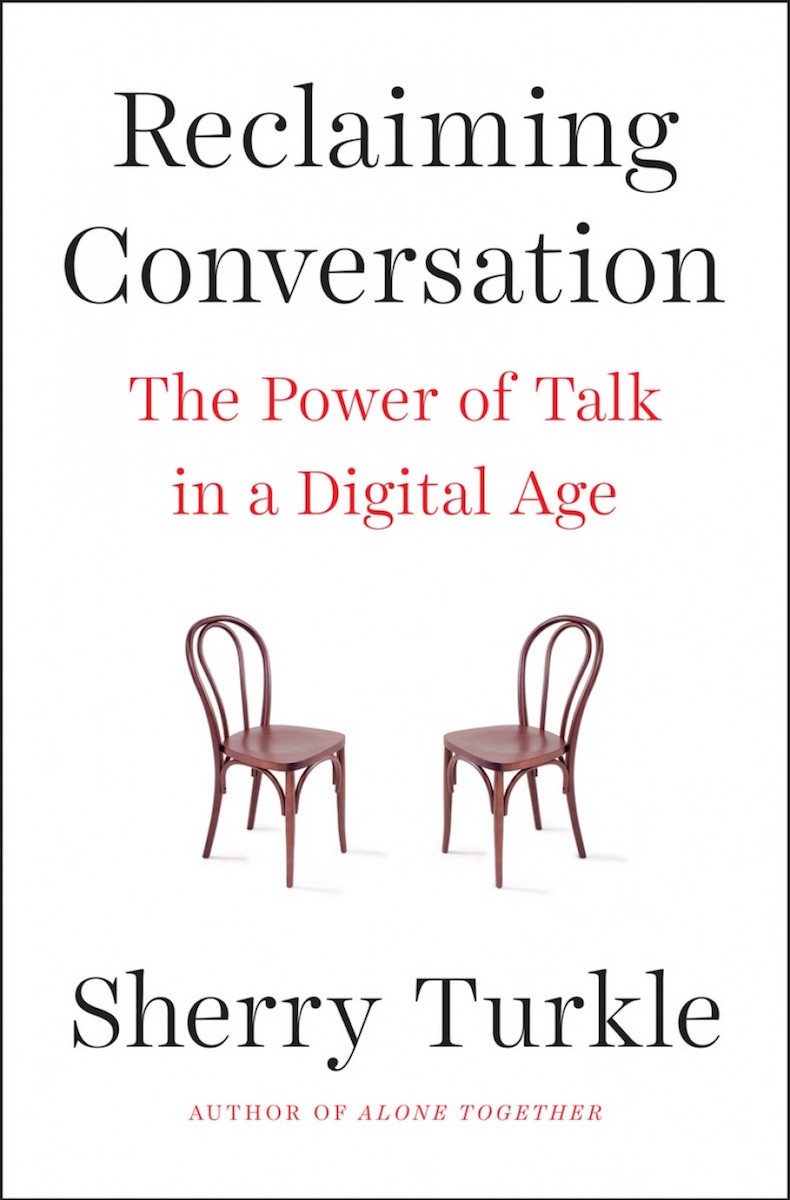This article is from PRAXIS volume 16, issue 1: "Parish as Educator"
Earlier this year, I attended a presentation about parish life in America by Professor Nancy Ammerman of Boston University. Ammerman is perhaps the leading sociologist of American religious life in the United States. In the presentation, she stated that the Church should be the place where we have a conversation about God. Part of the “bricks and mortar” of a parish should be that it is a place that encourages conversations that nurture the spiritual life. The audience chuckled at her recommendation, not because it was particularly funny, but because it says a great deal about Church life. Think for a moment about the content of the last conversations you had at your parish. Were they about God or the Christian life? Or were they about things happening outside the Church, or just the parish and community “grapevine”? Can we restore conversations about God in our parishes?
Sherry Turkle, a professor at MIT, has studied the effects of digital culture on people for many years. She is famous for having noted that we “would rather text than talk.” In her book Alone Together: Why We Expect More from Technology and Less from Each Other (2011), she pointed out the many corrosive effects of technology in our lives. If you haven’t read that book, you should.
In Reclaiming Conversation: The Power of Talk in a Digital Age, Turkle starts with the premise that face-to-face conversation creates the capacity for empathy, which is what bonds us as people and as communities. She points out that studies have shown a decrease in empathy in people today. Technology is the culprit. She writes, “We have learned that even a silent phone inhibits conversations that matter. The very sight of a phone on the landscape leaves us feeling less connected to each other, less invested in each other” (p. 4). But when people are freed from their phones, their texts and messaging technologies, empathy rebounds, usually in about five days. Turkle, as the book title states, wants us to reclaim conversation in our lives. She uses a line from Henry Thoreau’s Walden as her guide. He described that in his cabin, where he lived alone, there were “three chairs … one for solitude, two for friendship, three for society” (p. 10).
Reclaiming Conversation then describes, through stories, studies and examples, how we can recover conversation in our lives. Turkle explores the need for self-reflection and solitude (to have the conversation with oneself) and how conversation occurs within families and among friends. Notably, she explores how to bring conversations back to romantic life. She discusses the place of conversation in the workplace and in education. Finally, she brings this to the societal dimensions of our lives, such as the loss of privacy and data collection, e.g., "How does Facebook know what ads to show me?" These analyses (and a great deal of the book) will also have you thinking about the lack of civility in our public discourse today.
This brings me back to Ammerman’s observation about parish life. While Turkle doesn’t have a chapter about how to reclaim conversation in Church life, it is worth thinking about. Church should be a place where we can talk about God and nurture our relationship with Him. Reading Reclaiming Conversation should lead you to have this conversation in your parish and could be a place to begin.
How might we reclaim conversations in our parishes? What would those look like? How would they occur? Conversation topics could be suggested for the fellowship hour after services. Small group sessions also come to mind, meeting at the church or in people’s homes, with a guide that is open ended, freewheeling and filled with questions. Indeed, a great deal of time in religious education classes is (or should be) devoted to conversation, whether over a Bible passage, the life of a saint or another topic. These meaningful discussions not only teach the community of faith, but they also build it.
Rev. Anton C. Vrame, PhD, is director of the Department of Religious Education.
Like what you’re reading? Visit the Religious Education Department to view back issues of PRAXIS and learn how to subscribe. You may also contact the Department of Religious Education by phone at (646) 519–6300 or by email at [email protected].
